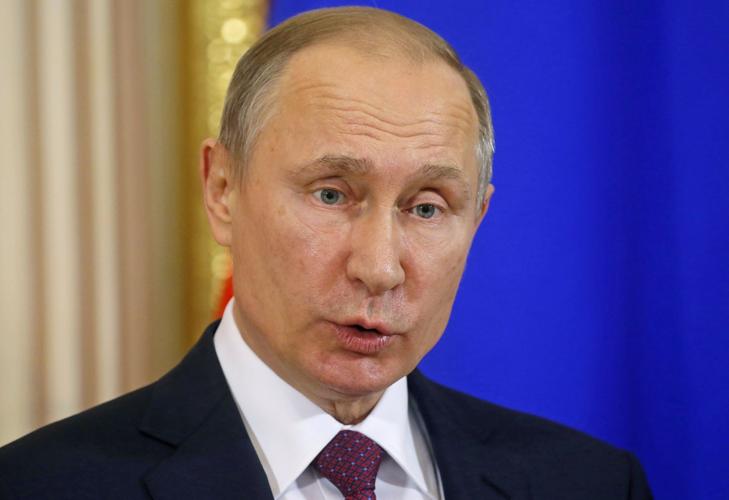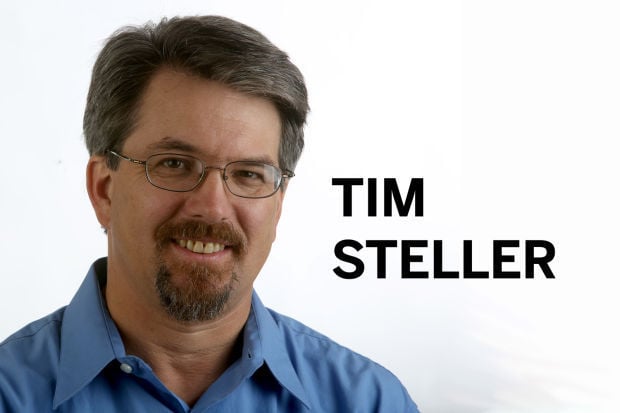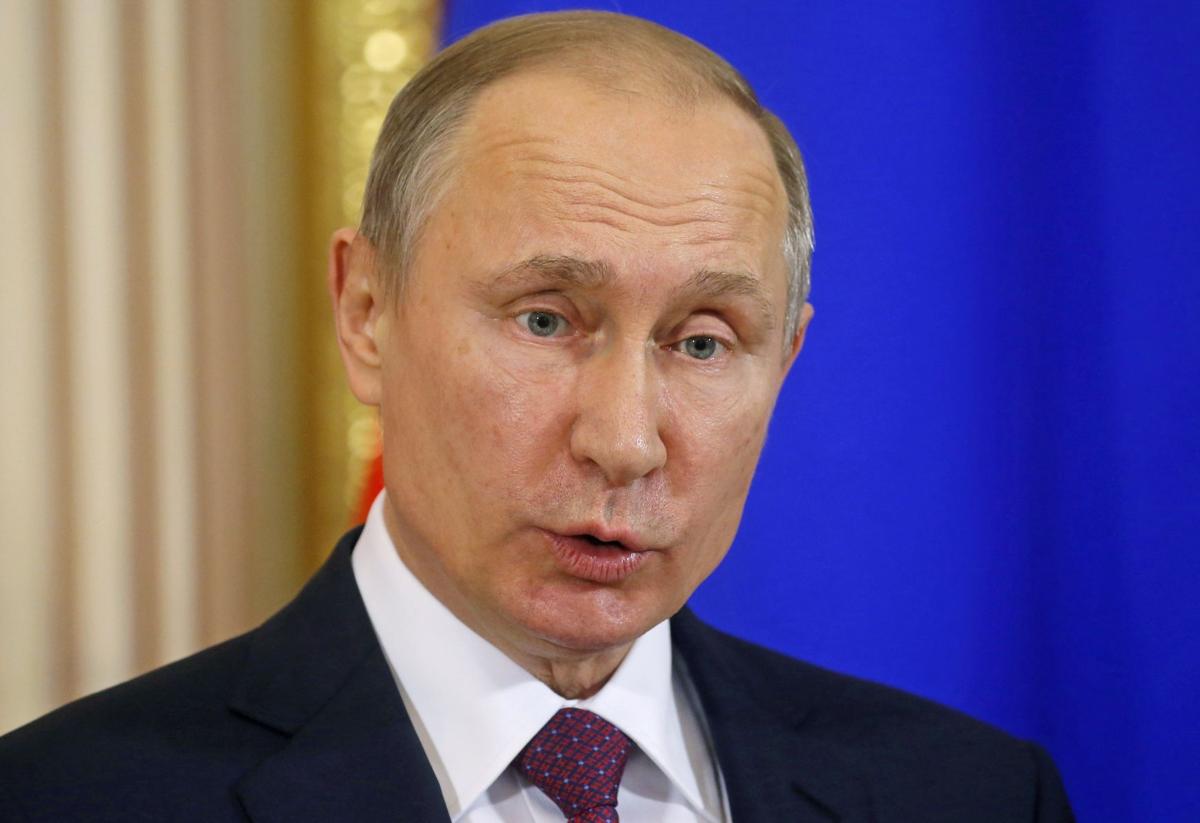U.S. Rep. Martha McSally has a point.
The Tucson Republican, interviewed Wednesday, said the more we remain divided about the legitimacy of our new president, the more Russia is achieving the objectives of its interference in our presidential campaign.
“This is exactly what they were maybe hoping to have happen,” she told me before leaving Tucson for the inauguration Friday in Washington, D.C. “That people would not be agreeing that on Friday America is having a peaceful transfer of power, which is something that is a foundation of our democratic process and an example to the rest of the world. In that sense, the more we feed into it, the more they actually have achieved their objective.”
And yet the doubts about Trump’s legitimacy will continue — legitimately so. This isn’t because he lost the popular vote, or because he violated norms of political conduct in his divisive campaign. Those things happened but don’t really undermine his legitimacy as president. Even potential conflicts of interest, while serious, don’t mean he’s somehow invalid.
The only outstanding issue that could undermine the legitimacy of his election is his campaign’s relationship with Russia.
That’s a point McSally’s Democratic colleague, Rep. Raúl Grijalva, made when we talked Thursday. Grijalva, as you may know, is not attending the inauguration, in an act of what he called “defiance.”
“The reality is, he’ll be president of the United States, but that lingering question is going to continue to fester,” Grijalva said.
It’s an important distinction to emphasize: One can accept that Trump is the president while still waiting for the evidence to come out as to whether he won the seat legitimately — that is, without his campaign working with Russians.
The latest in a series of stories on U.S. investigations into Russia and the Trump campaign came out Wednesday. McClatchy’s Washington bureau reported that six federal agencies have been collaborating for months on an investigation into Russia’s influence operation, with some focus on possible links to the Trump campaign.
McClatchy reported, “The working group is scrutinizing the activities of a few Americans who were affiliated with Trump’s campaign or his business empire and of multiple individuals from Russia and other former Soviet nations who had similar connections, the sources said.”
Earlier, the BBC reported, “a joint task force, which includes the CIA and the FBI, has been investigating allegations that the Russians may have sent money to Mr. Trump’s organisation or his election campaign.”
These allegations, if proven, would torpedo Trump’s presidency. As alarming as they are, they wouldn’t be so potent if Trump hadn’t also parroted Vladimir Putin’s rhetoric regarding NATO and other foreign policy issues throughout the campaign and as recently as last weekend.
Trump reiterated to reporters from the Sunday Times of London and Bild newspaper in Germany that he thinks NATO is “obsolete,” because it is old and because it has responded inadequately to terrorism. This is key and something that McSally, among many other Republicans and Democrats, disagrees with.
When I asked her about that comment, McSally said, “That definitely concerns me. NATO is a success story of alliances that has kept stability and peace in Europe since World War II, which we haven’t seen in history. It’s still legitimate, it still has a purpose. If I look at Russia’s objective, it would be to deligitimize NATO.”
I suspect she’s right — Russia does not want NATO troops welcomed on its borders in countries such as Poland, where American soldiers are now stationed. And it’s probably a higher-priority objective for Russia than dividing the American public was.
If Russia convinced Trump to assume his Putin-style policy perspectives by directly helping his campaign, then it would undermine his legitimacy completely as president. But if there are no illegal or covert links proven, he’ll have the office as long as he can keep it — legitimately.
No forums for now
In the months leading up to the vote on the Affordable Care Act, in 2009, members of Congress around the country held town-hall forums that turned raucous as supporters and opponents of the proposed law clashed.
It’s not going to happen again this year, with Congress considering repealing the act and replacing it. Neither McSally nor other Republican members of Congress are holding any events that could turn into vintage 2009 free-for-alls.
That’s not for constituents’ lack of pushing. On Wednesday at midday, McSally held a closed forum at the American Red Cross office at 2916 E. Broadway. Two miles down the road, a group of a couple dozen demonstrators raised signs in support of the Affordable Care Act.
Karen Randolph was one of a handful of group members who met with a few McSally staff members.
“Our concern is there are no town hall meetings,” she said. “They don’t want to happen what happened with the Tea Party.”
Indeed, that’s a nationwide concern, the Washington Post reported Thursday. The paper quoted John Feehery, a former GOP House leadership staff member, as saying, “In this day and age, real-life town halls are very dangerous for all but the most seasoned politicians. I think John McCain can get away with it and a few others, but most should stick to office hours, really good constituent service or tele-town halls.”
During her first term McSally hosted more than 30 events, but many were town halls that occur at workplaces, like the Red Cross event Wednesday or other events with limited audiences. She also held open houses at the Tucson and Sierra Vista offices in 2015.
Right now, the danger of chaotic events isn’t so great for Democrats, who are quite unified against repealing the law. Earlier Wednesday, Grijalva held a forum on the act. It was populated almost completely by people who agree with Grijalva that the law should not be repealed.
El Chapo in Tucson?
The news Thursday of Joaquin “El Chapo” Guzman’s extradition to the United States got me digging back into the federal court files and Star archives, because this is one of several cities in the United States where Guzman has been indicted.
Guzman was one of 18 people indicted on numerous charges for their roles in constructing one of the first sophisticated cross-border tunnels, the one between Douglas and Agua Prieta, Sonora, revealed in 1990. The case was filed in 1991, and most of the defendants were convicted and sentenced to prison.
El Chapo? Not so much. This case against him was dismissed in 2012, and he has been indicted several more times since, most recently in New York, where he’ll be prosecuted.







